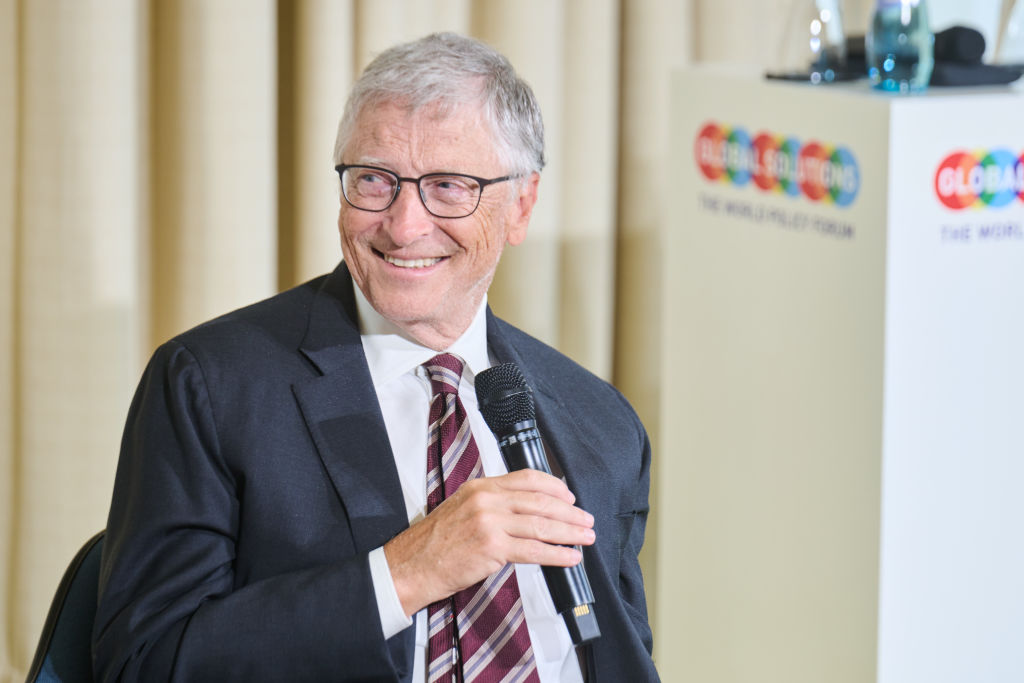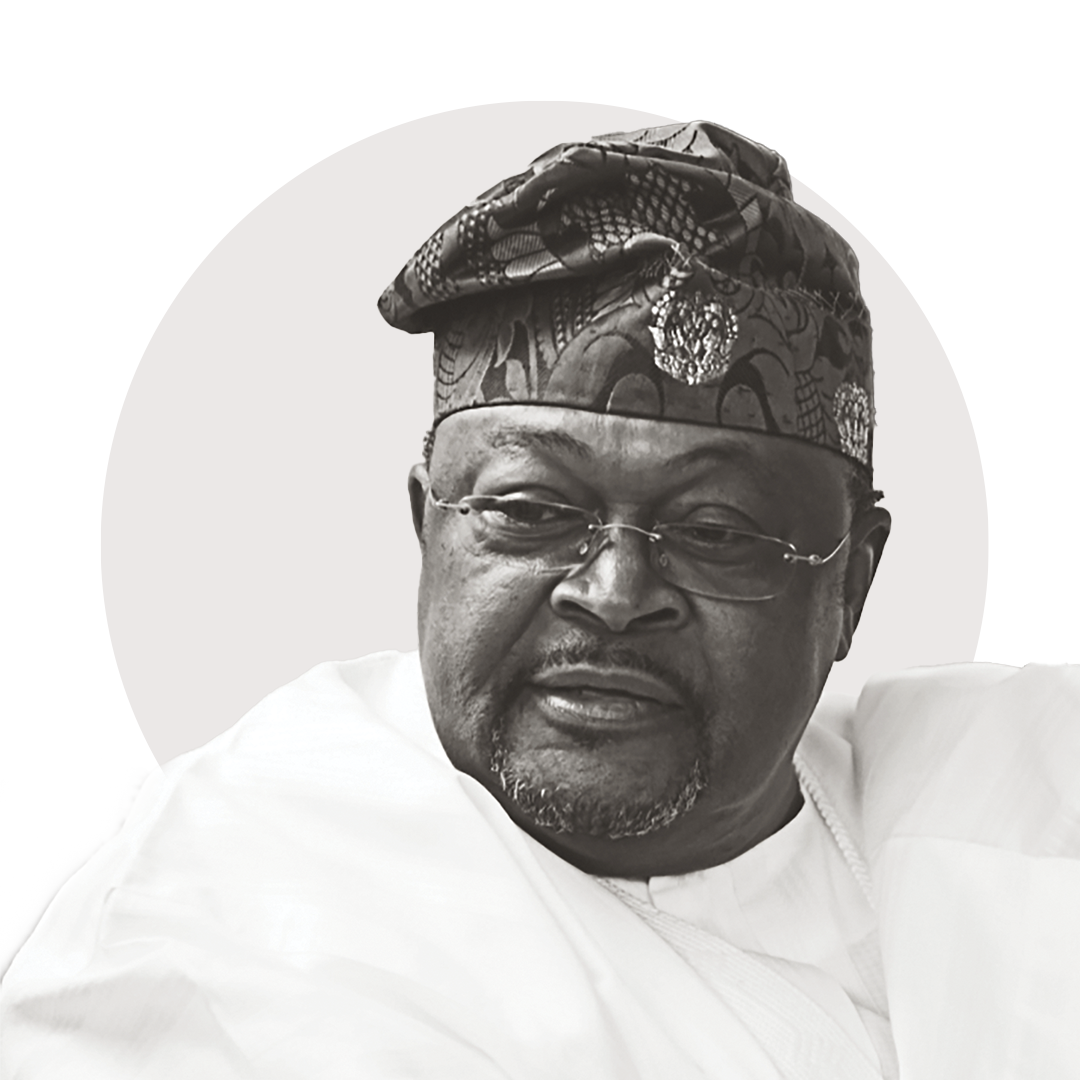In an exclusive interview with FORBES AFRICA from Seattle, Bill Gates, co-chair of the Bill & Melinda Gates Foundation, called for increased investments in nutrition to prevent child deaths, and expressed praise for the efforts being taken in primary healthcare by Nigeria and Ethiopia, following his recent trips to the countries meeting with government leaders and also Africa’s richest man, Aliko Dangote.
Ahead of the release of the eighth annual Goalkeepers report, A Race to Nourish a Warming World, today by the Bill & Melinda Gates Foundation, the Microsoft co-founder spoke to FORBES AFRICA, about the stark numbers, calling malnutrition “the world’s worst child health crisis”.
According to the World Bank, the cost of undernutrition is $3 trillion in productivity loss every year, and with data in the Goalkeepers report showing that 40 million more children will suffer from hunger’s worst effects by 2050 due to climate change, Gates hopes for more targeted health spending to save millions from malnutrition.
The report also cites that the total share of foreign aid going to Africa has decreased: “In 2010, 40% of foreign aid went to African countries. But that number is now down to just 25% — the lowest percentage in 20 years — despite more than half of all child deaths occurring in sub-Saharan Africa.”
“The Gates Foundation uses the United Nations General Assembly meeting in New York every year to highlight both the progress and challenges of helping the world’s poorest children, and this year, the focus is nutrition,” says Gates to FORBES AFRICA.
Loading...
The report highlights proven, even low-cost tools to help solve malnutrition, for pregnant women and young children on the continent, and also highlights how promising new research into the microbiome can improve people’s health.
Gates remains optimistic, and in Africa, admits to seeing innovations on the ground.
“I applaud the scientists who help us run these trials,” he says. “That’s been true as we come up with new vaccines, and I was in Nigeria, we celebrated the fact that they have gotten the cervical cancer vaccine out to a very high percentage of children. And often, primary healthcare delivery in Nigeria is not high quality. It’s not as well-funded as it should be, and there are a lot of execution challenges. So, when Nigeria actually does some primary healthcare really well, we applaud that, as it sets a good example. And there are some good people trying to improve it.”
On his recent trip to Africa, Gates met with Nigeria’s Minister of Health, Dr Muhammad Ali Pate, and Ethiopia’s Prime Minister Abiy Ahmed. Both countries work closely with the Gates Foundation.
“In Ethiopia, we’ve made real progress in having a data system that lets the people there look and say, ‘okay, where are we getting the vaccines, and where are we not’, and we were a big partner in that. But it’s great [to see] kids from the university now totally running this data system and able to see if the vaccines are in stock, and if not, what can they do?
“The execution of primary healthcare in Ethiopia is quite good, even though, overall, they’re a fairly poor country, but they do prioritize it. And there are some lessons for other African countries on how that has been done. I meet with ministers of health wherever I go and sometimes with the heads of state. I did talk with Nigeria’s President Bola Tinubu. He was in China for FOCAC [Forum on China-Africa Cooperation], so, it wasn’t face-to-face, but he took the time to make sure we were talking about the challenges they face and how we can help them.”
In Nigeria, Gates’ foundation also works closely with the Dangote Foundation. Gates says Dangote – also a good friend – spent “a lot of time” with him on his recent trip.
“The Dangote Foundation’s and Gates Foundation’s work in Nigeria is about 75% overlapped. We learn from each other. You know, obviously, they understand Nigeria, and we understand the microbiome. And so, that’s complementary. Aliko is in an intense period in terms of his new refinery and all, but still, the whole time I was in Nigeria, he made time. And they have a great, very professional team. We work together mostly on primary healthcare…
“We had a lot of good discussions, and Aliko Dangote and Dr Pate were in most of those. We also met with the agricultural people about chickens and milk and seeds that’ll increase agricultural productivity because [in] these countries, as their budgets are so tight, the idea that they’re going to raise food productivity is one of the clear things, so that they’re not importing as much food, and [therefore they are] creating opportunity in the agricultural system. So, it’s mostly health, because that’s our big thing, but it’s also some of the work in agriculture as well. And Dangote, both philanthropically and as a private entity, is a big partner there.”
Gates speaks about a second act or “a new global health boom to save millions of lives” in the report, but to a question on whether we will see a cure for AIDS in our lifetime, he gave it a “10- to 20-year timeframe”.
“Yes, I would say; even though, in the short run, these incredible headwinds of debt and reductions in aid and some instability in the next five years are going to be very challenging. If you take a longer perspective, where you get new research – like we are spending literally billions on the idea of an HIV cure – I think it’s very likely in the 10- to 20-year timeframe that these innovations will get done. We’ll figure it out, despite the challenges, how to get them delivered. And so, that’s why this work, including delivering it in Africa, is the big focus of the Gates Foundation, and you’ll hear from us in January as we celebrate our 25th anniversary. We’re talking about our goals for the next phase of our work, and we’re going to set some very ambitious goals. So, yes, I am optimistic on HIV specifically, and on health broadly, despite the fact that we’re in a tough period.”
Loading...





















